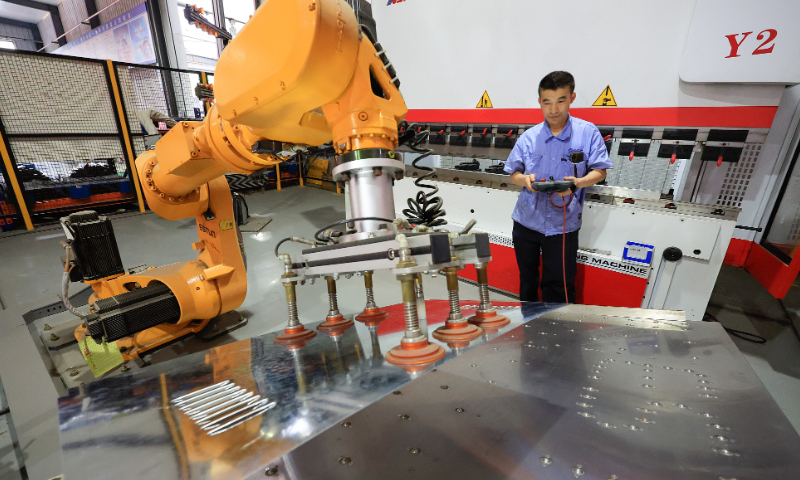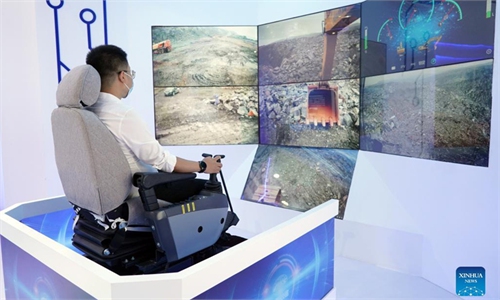
An automatic bending robot is processing a distribution cabinet on June 22, 2022 in the workshop of a company located in Hefei, East China's Anhui Province. Photo: VCG
People should not be concerned that robots will lead to job losses, said a senior Chinese expert in the robotics industry, noting that China's rapidly developing robotics industry is injecting fresh impetus into Chinese modernization and social development.
"The kind of jobs that robots can take away from us are those we don't like," Liu Jinchang, a researcher with the Ministry of Science and Technology, told the Global Times on the sidelines of a press conference for the 8th China Robotop Summit. "They cannot take away jobs that people like."
Liu's remarks came amid concerns that China's fast installation of industrial robots could pose a potential threat to humans looking for the same job. China is also home to the world's largest labor force and many jobs are labor-intensive.
A study by Oxford Economics in 2019 said an estimated 20 million manufacturing jobs are set to be lost to robots by 2030.
Liu said the mismatch in labor supply and demand is born out of the current development stage in China as simple manufacturing jobs are gradually phased out or sourced from abroad and workers develop more skills.
China has seen extremely fast development of the robot industry in recent years.
In December 2021, China issued a guideline for the robotics industry for the 14th Five-Year Plan period (2021-25), aiming to realize an average annual revenue growth rate of over 20 percent for the industry.
There were 322 robots for every 10,000 Chinese workers as of November 2022, domestic news portal CGTN reported. The figure was 13 times that of a decade ago.
The data, known as density of manufacturing robots, is set to be doubled by 2025 from the level in 2020, according to the "robotics+" action jointly released by the Ministry of Industry and Information Technology and 16 other government departments in January this year.
Most of the jobs taken over by robots in China involve tedious and repetitious tasks, Liu noted, adding that China's fast-growing robotics industry is creating other better-paying jobs at the same time.
China is striving to build a modern industrial system with the real economy as the pillar to help the country take the strategic initiative when it comes to its future development and global competition.
In this drive, robotics is the most promising industry of all, Liu said.
Robots will also play a part in China's transition from demographic dividend to talent dividend as they free up more time for people to pursue higher quality of life.
The 8th China Robotop Summit, to be held in Yuyao, East China's Zhejiang Province, will be held from May 23-25, according to the event's organizers.
Global Times


